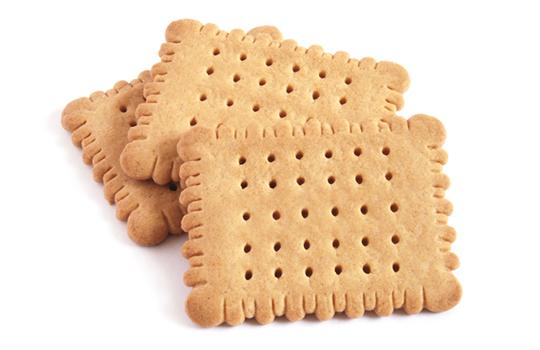Stopping the clinic’s biscuit supply may seem trivial, but small things make a difference, says Ceinwen Giles
“It’s outrageous.”
“Pretty soon there won’t be anything left to cut.”
“What the actual….???”
These were the comments I heard from nurses and fellow patients at my immunology clinic a few months ago. The source of their ire was not, as one might expect, the cutting of access to treatment or extended waiting times—it was biscuits.
I’ve been attending the same clinic at a large, modern hospital for five and a half years. Because the treatment I receive is administered by IV every four weeks, I’ve gotten to know many of the other patients fairly well. We have an odd sort of camaraderie, sitting together hooked up to various bits of equipment and drugs for hours at a time. We chat about our families, holidays, and current events, but few conversations have become as animated as what I now think of as “Biscuitgate.”
Biscuitgate started three months ago when we turned up at our usual day and time to find that the clinic’s biscuit tin was empty. It soon emerged that the tin was empty due not to oversight, but rather to financial cuts.
“It started years ago”, one fellow patient mused. “They cut the Branston pickle in the cheese and pickle sandwiches, and it’s been downhill from there.”
“That Jeremy Hunt stole my biscuits”, muttered another patient loudly.
Indeed, the last few years have seen an increasingly rapid process of cuts to the snacks offered to patients. It may have started with the pickle, but it expanded to all sandwiches, orange juice, and yogurt. The biscuits and tea were all we had left.
Here’s the thing: I don’t even usually eat these biscuits. But having witnessed the uproar that the de-biscuitisation of the clinic caused, I decided I needed to fight for the right of my fellow patients to have their infusions with a side of cookies whether I personally eat them or not.
Online research showed me that a catering box of 100 biscuit packets costs approximately £18. Estimates by my nurses vary but, on average, the clinic gets through two to three boxes a month. At this price we’re talking about a cost of around £13 a week. The NHS Trust where I receive my treatment has an annual budget of more than £800 million.
I initially approached a non-executive director of the hospital whom I know personally, and I told her of our plight. I pointed out that during hours of a somewhat unpleasant treatment, the biscuits are a small kindness. When the treatment makes us tired and nauseous, as it often does, the biscuits offer a small sugar boost and can help settle the stomach. Yes, we can bring food with us (many of us do) but when you’re sitting in the same chair for four hours at a go, the food goes quickly.
The director understood how much small things can matter, and promised to look into it. The biscuits made a short-lived reappearance, but this month they were cut again. Word on the street (or hospital corridor, as it may be) is that although the matron has approved the biscuits, an operations manager of some description has refused to sign off the request. In any case, the biscuit tin is again lying empty.
The repeat cutting of the biscuits led me to question whether I was fighting a losing, or perhaps unimportant, battle. The clinic I attend does, after all, provide me with very expensive drugs for free. However, having now debated this topic far and wide, my conclusion remains the same: the biscuits matter.
We may be living in the age of austerity, but good patient experience should be seen a fundamental dimension of healthcare quality, not just a nice-to-have afterthought. With increasing cuts and little hope of more money for the NHS anytime soon, we all need to make difficult decisions, but surely these should be made in partnership with those who are impacted most?
Whoever is responsible for the raid on biscuits has, as far as I can tell, never spoken to the staff or patients in this clinic about their experiences. Instead, they’ve made a unilateral decision without understanding the true value of the biscuits. I’d postulate that £13 spent on biscuits is probably more than returned in terms of an increase in trust and respect for the hospital and it’s staff, as well as improved adherence to treatment protocols.
I’ve raised another complaint, but have yet to hear if any change is in the offing. In the meantime, if you see a group of people outside a hospital with a sign saying “These cuts really take the biscuit”, you’ll know why.
Ceinwen Giles is a director at Shine Cancer Support and a trustee of the Point of Care Foundation. She also works as a consultant in patient involvement and experience and is an associate at Swarm.
Competing interests: I have received fees for consulting from GlaxoSmithKline UK. I’m a trustee of Shine Cancer Support and the Point of Care Foundation. My speaking engagements have had travel reimbursed (but no other fees paid) by a number of organisations: King’s Fund, Macmillan, Lymphoma Association, NHS Employers, NHS Confederation.

